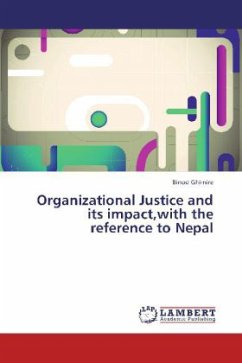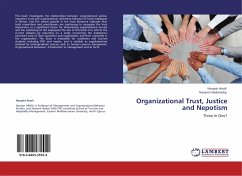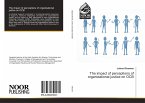Purpose This study aims to examine the impact of organizational justice on organizational commitment and intention to stay in the organization of Nepal. Approach- This study is descriptive and analytical. It is based on the effect of perceptions of distributive and procedural justice on commitment, among the employees of different educational, financial and professional organizations from Kathmandu Valley. Findings-This study revealed a positive and significant relationship showing that the foundation of an employee s commitment and retention is within the application of both distributive and procedural justice, with procedural justice having stronger effect. Implication- The findings in this study would help managers and business organization in Nepal to formulate strategies that involved work factors such as distributive and procedural justice to improve the management of human resource development.It is also helpful to all those who are interested to explore the impact of justice on workplace. Originality- This is perhaps the very first invesigation of its kind in the Nepalese context.
Bitte wählen Sie Ihr Anliegen aus.
Rechnungen
Retourenschein anfordern
Bestellstatus
Storno








